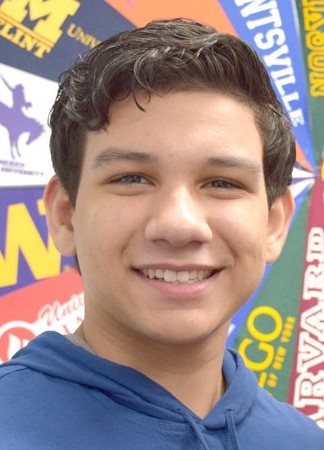Information
Please Log In for full access to the web site.
Note that this link will take you to an external site (https://shimmer.mit.edu) to authenticate, and then you will be redirected back to this page.
Course Description
A learn-by-design introduction to modeling and control of discrete- and continuous-time systems, from intuition-building analytical techniques to more computational and data-centric strategies. Topics include: linear difference/differential equations (natural frequencies, transfer functions); controller metrics (stability, tracking, disturbance rejection); analytical techniques (PID, root-loci, lead-lag, phase margin); computational strategies (state-space, eigen-placement, LQR); and data-centric approaches (state estimation, regression, and identification). For each of six two-week blocks, concepts are introduced with a combination of lectures, first-week on-line prelab problems and a build-and-test lab; and then mastered in a second-week design lab followed by a postlab exploration problem set (written). In each of the labs, students model, design, test, and explain systems and controllers involving sensors, actuators, and a microcontroller (e.g. optimizing thrust-driven positioners or stabilizing magnetic levitators). Students taking the graduate version complete a "from-scratch" project, either their own (by approval) or one of ours (e.g. standing-robot).
Prerequisites: Physics II (GIR) and 18.06/18.C06 (can substitute 18.03, Fall 2023) or permission of instructor
Course Structure
Lectures: Mondays and Wednesdays, 3pm, 32-141On-line Recitations: TBA,
Labs: Fridays 10am-1pm or 2pm-5pm, 38-545
Office Hours: Mondays 7pm-10pm, Thursdays 7pm-10pm, Sundays 2pm-5pm and 7pm-10pm (starting in week 2)
This subject covers a curated list of topics in dynamical system modeling and control, in both continuous and discrete time. It is design-oriented, so a majority of the learning comes from working on the labs. PLEASE PLEASE PLEASE find a partner, it does not have to be the same one every week. Students who work in pairs typically get more out of the class (and have more fun).
Each "lab" spans two weeks and starts with building and "playing" with an artifact in an intro lab, which provides context for an on-line prelab, which builds skills needed for a design lab, whose issues are examined more analytically in a written postlab.
- Intro Lab: During the intro lab, you and a partner (we strongly recommend, but do not require, working with a partner) build an artifact, experimentally explore its behavior, and discuss findings during staff checkoff interviews. This lab's goal is to familiarize you with the artifact and its control challenges, and provide context for the concepts covered in lectures and the prelab.
- Prelab: The on-line prelab includes explanations and examples of concepts covered in lectures, followed by auto-graded on-line practice problems. The questions are intended to help you test/verify your understanding, so incorrect answers can be resubmitted WITHOUT PENALTY. The prelab's goal is to help you develop the skills needed for the design lab, so please finish the prelab before starting the design lab.
- Design Lab: The design lab is intended to help you master the concepts presented in lecture and then practiced in prelab. Typically, you will derive models, use those models to design controllers, test those controllers, and then analyze your test results. The design labs are challenging, and are key learning experiences, NOT exams! We expect you to need help (from peers and/or the staff, or anywhere else), but also expect you to succeed, and be able to demonstrate comprehensive understanding during checkoff interviews. Checkoff interviews are also NOT exams! They are intended to help you uncover gaps in, or to stretch, your understanding, and can be repeated (even multiple times and during office hours) with NO PENALTY. Though, please complete the lab checkoffs before attempting the postlab.
- Postlab: The postlab is intended to help you strengthen your mastery of the concepts from lab, by having you investigate observed behavior or control extensions from a more analytical perspective. Your solutions to postlabs are staff-graded written assignments which you can submit in a variety of formats, including pdfs or image files of handwritten solutions (e.g. jpg or png). Since solutions are posted, postlabs must be submitted within a few days of the due date given on each assignment (see below).
Office Hours
Office hours will be available at times posted on our home page, and will adjusted based on class preferences. Please take advantage of these times to finish labs and/or clarify your understanding of the course material.
Do not wait until the last minute to get help, as office hours can get very BUSY as due dates approach.
Grading and late policy
Your grades on the online questions and in-lab checkoffs are based on percentage completed, WITHOUT REGARD TO RETRIES! Your written postlab questions will be graded as check (good understanding), check+ (great understanding), or check- (conceptual gaps). You earn an A in this subject by completing all of the lab checkoffs, completing at least 90% of the online questions, and receiving an average of "check" on the top five of the six postlab problem sets.
The six postlab problems are due on Tuesdays (or sometimes Wednesdays), roughly one week after the associated design lab, but can be submitted without penalty until postlab solutions are posted, five days later (except for the last postlab, due the last day of classes). Note also that we drop the lowest postlab problem set grade, giving you additional flexibility.
Extension Policy
Our goal is to help you to get the most out of your educational experience in this subject and beyond. As with most subjects at MIT, this subject is fast-paced and challenging, though we try to minimize stress with our penalty-free retry policies (you never fail, you just haven't succeeded yet). Nevertheless, since we insist that you eventually demonstrate thorough understanding in each of more than thirty staff interviews, it can be difficult to catch up if you fall too far behind.
If you find yourself have difficulties or find yourself falling behind, please do not struggle alone. Discuss the situation with the staff, with your academic advisor, and/or S^3.
We will do all that we can to provide accomodations if unplanned issues (such as illness or personal problems) arise. Please consult an instructor if you have concerns.





